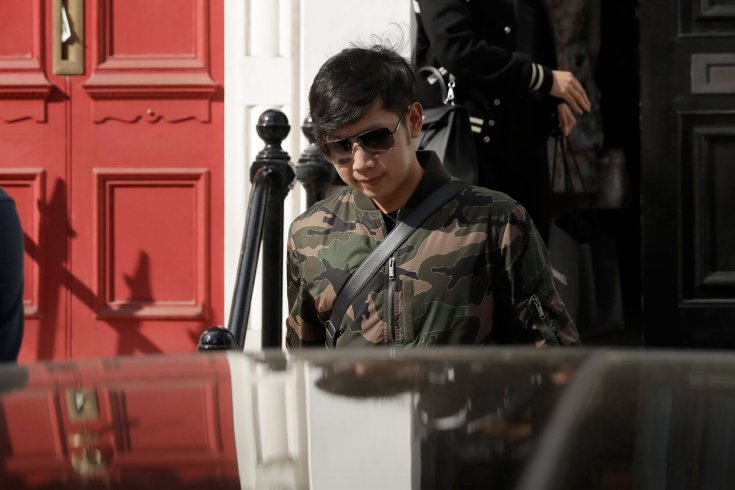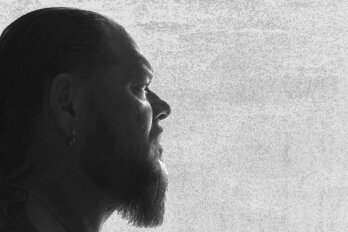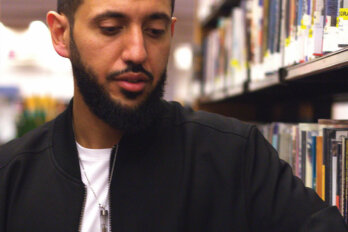In the early morning of September 3, 2012, a Bangkok playboy named Vorayuth “Boss” Yoovidhya roared his Ferrari down Sukhumvit Road. This was not an unusual sight. Boss, then twenty-seven, was a local socialite. His grandfather is the co-founder of the Red Bull energy-drink brand, and according to Forbes, the family is one of Asia’s richest, with more than $13 billion (US) to their name. But, as Boss drove down one of the city’s main drags that morning before dawn, he slammed into motorcycle cop Sergeant Major Wichean Glanprasert, dragging the officer, along with his tangled bike, down the block. Boss immediately fled the scene.
Glanprasert’s body was found out on the street, and over the next few hours, police followed a trail of brake fluid to the Yoovidhya family’s gated property nearby. The car they found there had a shattered windshield, and its bumper was dangling. At first, a chauffeur was blamed for the accident, but Boss later admitted to being the one behind the wheel.
Boss turned himself in, his cap pulled low, his father holding his arm. The alcohol in his system that the police detected? He’d thrown down a drink to steady his nerves after the accident, his attorney later said. The Yoovidhyas put up the equivalent of about $16,000 for bail at the police station, and Boss went home that same day.
Locals like to say that Thai jails are only for the poor. Boss seems to be living proof. Seven years after Glanprasert was killed, the prosecution has been indefinitely delayed. And the statute of limitations is expiring on potential charges—speeding, hit and run, causing death from reckless driving—one by one. The times when Boss has been called into court, he hasn’t shown up, claiming through his attorney that he was sick or out of the country on business.
Within weeks of the incident, Boss was back to enjoying his family’s jet-set lifestyle: he flew around the world on private Red Bull jets, cheered the company’s Formula One racing team from Red Bull’s VIP seats, and kept a shiny black Porsche Carrera in London with custom licence plates—B055 RBR, or Boss Red Bull racing.
An Interpol arrest notice was issued five years after the accident, but so far, it has effectively been useless. Boss is reported to have at least two passports and a complex network of offshore accounts, and with these tools, he’s able to travel the world with impunity. More than 120 photos posted on Facebook and Instagram, as well as some racing blogs, show Boss visiting at least nine countries since Glanprasert’s death. Stops include the Wizarding World of Harry Potter in Osaka, Japan, where he posed, grinning and wearing robes from Hogwarts’s darkest dorm, Slytherin house. He’s cruised Monaco’s harbour, snowboarded Japan’s fresh powder, and celebrated his birthday at Restaurant Gordon Ramsay in London. This means that, while authorities say they’ve had no idea where Boss was, his friends, family, and all of their followers seem to have had no doubt about his whereabouts and the good times he’s been having. One summer, in Japan, he posted a ten-second video of sausage and eggs decorated with seaweed eyes, tagging a young relative. His parents responded with a thumbs up.
In Thailand, many say that the justice system has two tracks: one for the elite and one for everybody else. This is seen not just through brazen killings, like that of Glanprasert, but also through financial schemes used by the country’s wealthy. During the time Boss hid in plain sight, an Associated Press (AP) investigation into his whereabouts simultaneously exposed how the Yoovidhya family has spent decades hiding its assets in offshore accounts. As Brooke Harrington, professor of sociology at Dartmouth, said in a 2018 interview with NPR: “The lives of the richest people in the world are so different from those of the rest of us, it’s almost literally unimaginable….National borders are nothing to them. They might as well not exist. The laws are nothing to them. They might as well not exist.”
Boss’s grandfather Chaleo Yoovidhya grew up in poverty, the son of a duck seller. He was known as a modest, humble man who insisted on privacy. He founded TC Pharmaceutical in 1956 and, over the decades, developed more products, including drinks sold by the bottle or can.
A few years before Boss was born, Austrian entrepreneur Dietrich Mateschitz was in Thailand for business and popped open a can of Yoovidhya’s Krating Daeng (which loosely translates to “red bull”) to help deal with his jet lag. Mateschitz was impressed with the drink. He was already acquainted with Yoovidhya through business, and the two cut a deal. They each put in $500,000 (US) to carbonate the beverage and globally market it as Red Bull. In 1987, Red Bull Energy Drink went international and the Yoovidhya family fortune boomed. Today, the drink is sold in 171 countries. Red Bull also owns race cars and jets and sponsors extreme athletes. Forbes reported that, last year, the company had about $6.5 billion (US) in sales.
As the business expanded, Chaleo Yoovidhya began hiding his assets. In 1994, he set up a shell company called Golden Falcon Trading Company in the British Virgin Islands. The Panama Papers, an international collaboration among journalists that began in 2016 to sift through leaked documents that identify the offshore financial dealings of the world’s wealthy, disclosed that ten of Chaleo’s children were shareholders.
The Yoovidhya family’s efforts to hide assets show how billions in private wealth can be moved around the world with minimal regulation to avoid tax and other legal constraints. The extent of the family’s confidential deals was inadvertently exposed by Boss and his social-media-loving cousins during his time on the run: they had posted photos of Boss walking into a London townhouse, and they even included the address. In April 2017, days after Boss’s attorney told a Bangkok court that his client couldn’t show up because he was on a mission in the United Kingdom, a reporter called out questions to the Red Bull heir on his London doorstep: “What is your mission in the UK, Boss? What are you doing here? Are you going to Thailand to meet with prosecutors?” Smiling slightly, eyes averted, Boss gave no answer. Hours later, he and his parents hurried out of the home with suitcases. That was the last time Boss was seen in public.
An investigation into the five-storey brick home showed that it is the address Boss’s father, Chalerm Yoovidhya, gave when incorporating Siam Winery Trading Plus in the UK in 2002, and that his mother, Daranee Yoovidhya, used when opening a food-related business there in 2006. But, according to AP, the listed owner of the home, and at least four other multimillion-dollar properties in London, isn’t the Yoovidhyas—it’s Karnforth Investments, a company incorporated in the British Virgin Islands, according to the Panama Papers.
After more digging into the Yoovidhyas, it became clear that there were more shell games being played. Even though the Yoovidhyas and Mateschitz own Red Bull, the main shareholder of the energy drink’s UK business is another British Virgin Islands company called Jerrard Company.
Here’s where it gets complicated: an investigation by AP revealed that Karnforth has just one shareholder, which is Jerrard. And Jerrard is held by a third offshore company, which controls a fourth, called JK Fly. Who owns JK Fly? Karnforth. The Yoovidhyas’ offshore companies overlap with nominee directors—people legally paid small amounts to sign forms and attend directors’ meetings in lieu of the true owners, whose names remain confidential.
According to AP, documents from the Panama Papers show that, for years, money has flowed back and forth between these various entities. For example, in 2005, Jerrard loaned Karnforth $6.5 million US to buy two London properties. In 2012, Jerrard cancelled the mortgages, giving Karnforth ownership of the properties. Since 2010, JK Fly has owed Karnforth, its sole shareholder, about $14 million (US) in an interest-free loan to purchase aircraft.
Business transactions that are deliberately obscured might look suspicious, but they are not necessarily illegal. It is possible that the Yoovidhya family might just be using established and legal tax-avoidance arrangements, financial experts told the AP. “Anonymous money transfers? Those are pretty common in illegal schemes, but they’re also common in legal schemes,” says University of Cambridge professor Jason Sharman, who researches corruption and money laundering. What matters, Sharman said, is that the agents moving the money know who the true owners are.
But, as the Panama Papers show, that disclosure has not always happened. In 2010, and again in 2013, the papers show that auditors at Mossack Fonseca’s head offices in Panama—the company that arranged the Yoovidhya’s network of companies—raised concerns about Karnforth and Jerrard. Documents verifying the true owners were missing.
“Failure to keep such files up to date will result in high administrative and statutory fines,” Mossack Fonseca auditors told the UK-based corporate-services agent handling its accounts. Representatives of the Yoovidhya family told a London newspaper that neither Mossack Fonseca nor its auditors raised concerns about missing documents and that all the law firm did was provide a registered office address for two of their companies.
Whether or not anything illegal has occurred is unknown. But, while other governments were swift and aggressive in responding to Panama Papers revelations, that has not been the case in Thailand. More than 1,400 Thai individuals were identified in the documents, but according to AP, the government calls the reports rumours. Thailand’s Anti–Money Laundering Office said it was investigating more than a dozen of those individuals—unnamed current and former politicians and businesspeople. But years have passed and that office has not reported any crimes.
Law professor Viraphong Boonyobhas, director of Chulalongkorn University’s business-crime and money-laundering data bank in Bangkok, would not speak directly about the Yoovidhyas or any other Thai person or company, saying he feared for his legal and physical safety. But he noted that, usually, when it comes to stashing money in offshore accounts, “people do this to hide corrupt money.”
Boonyobhas said that his expectations for accountability in the military-run government are low. Thai authorities have vowed to fight corruption, but “wealthy people in Thailand are influential people,” Viraphong says. “Maybe the government can’t untangle such a complicated network.”
Thai laws are filled with loopholes, says Sumaporn Manason, a legal expert at the Thai Ministry of Finance. The country struggles to meet basic international frameworks to combat money laundering and terrorist financing, she says. And tax avoidance—which can include keeping money anonymously in offshore accounts—is legal and common. “Here, we call it tax planning,” she says. As a result, Thailand misses out on much-needed revenues that could build bridges, highways, and schools.
Corruption is defined by the abuse of power for private gain. It erodes public trust and undermines institutions. In Thailand, many residents assume the wealthy elite can break the law with impunity. Over generations, people have grown used to giving mandatory “gifts” of cash to judges, police, and government officials in exchange for building and business permits, as well as favourable court decisions. They’ve watched as rich and influential families win lucrative contracts and avoid prosecutors.
Here’s who gets arrested in Thailand: citizens gathering for nonviolent protests to denounce the coup-installed junta government, bloggers posting social-media messages critical of the king, journalists carrying bulletproof vests and helmets for protection at riots that at times turn deadly.
Here’s who seems to escape justice: the son of a wealthy Thai businessman who slammed his Mercedes Benz at high speed into a smaller car in 2016, killing two graduate students (his case is still pending more than two years later). In 2010, a sixteen-year-old unlicensed daughter of a former military officer crashed her sedan into a van, killing nine people. The teen was given a two-year suspended sentence and took almost six years to complete her community service. Two former prime ministers, billionaire businessman Thaksin Shinawatra and his sister Yingluck Shinawatra, have both been convicted by Thai courts of conflicts of corruption, though both have avoided their sentences. They are said to live in Dubai and have spent holidays in London.
Corruption in the form of unfair advantages for the rich prompt a simmering fury in Thailand. It seems to boil over every few years, when Bangkok antigovernment protests turn deadly. And now, across the country, Boss’s impunity has touched a raw nerve. In a 2019 poll, respondents were asked what they think is the worst thing about Thailand, and 52 percent cited politics, the behaviour of politicians, and corruption. As the Agence France-Presse said: “Thais are well-versed in tales of close bonds between cops and wealthy suspects.”
For victims’ families, the consequences of impunity and corruption are far more visceral. The disparity that exists in Thailand can be seen when looking at Boss’s life in relation to that of Sergeant Major Wichean Glanprasert, the man who was killed.
Boss and his siblings (his brother is nicknamed Porsche, his sister Champagne) came of age in a private, extended family, the fortune of which expanded from millions to billions as they grew up. Boss received a British education at Bradfield College, a pastoral brick-and-stone boarding school in the countryside of Berkshire, UK. Boys there wear suits and ties, and attending costs about £38,000 a year. Some of Thailand’s wealthiest families are reported to send children there.
Back in rural Thailand, Glanprasert didn’t have many opportunities, but he was ambitious and determined. The youngest of five, he was the first in the family to leave the coconut and palm farm for the city, the first to get a government job, to graduate from college. He paid for his parents’ care as they died and supported a sister through cancer. He had no children but planned to put his brother’s kids through college. He would tease a favourite nephew that he’d have to care for him in old age.
The dead policeman’s brother, Pornanan Glanprasert, didn’t so much hear the news of the killing as feel it. In the days after the hit and run, Pornanan and his sisters attended funeral rites at the temple, where Buddhist monks chanted and incense burned. One day, Boss and his mother made a surprise visit. Dressed in black, they pressed their palms together and bowed to Glanprasert’s portrait.
The policeman’s family grieved but figured at least there would be justice. Glanprasert was a police officer. Certainly the criminal-justice system would hold his killer responsible. “At first, I thought they’d follow a legal process,” says Pornanan.
Today, in his small apartment, Pornanan keeps photo albums of his brother and a larger framed portrait in a glass cabinet. At first he was angry. Now he’s just deeply sad. About the criminal-justice system, he says it runs on a “double standard,” one for most people who face their crimes and one for the elites who don’t have to pay the price.
He tries not to think about Boss, who he assumes is still hiding out abroad. “Perhaps he is worried about damaging his reputation, perhaps he does not want to lose face,” Pornanan says. “I think he does not tarnish his reputation, as we common people say, perhaps he does not want to even walk near the prison, not like common people like us.”
Parts of this story were previously reported by Martha Mendoza in the Associated Press.





